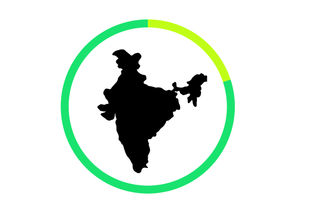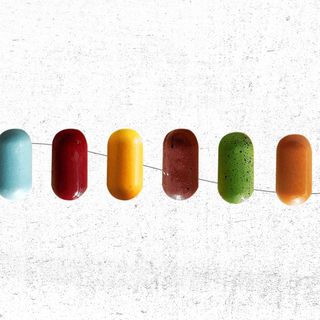
20% of Indians Have Been Exposed to Covid19, Nationwide Sero‑Survey Suggests
With four in five Indians still vulnerable to the virus, vaccination becomes even more critical.

One in every five Indians may have already been exposed to the novel coronavirus, according to a nationwide survey by the Indian Council of Medical Research (ICMR). This suggests that 80% of Indians — about four in five people — remain susceptible to the virus, making vaccinations even more critical.
ICMR’s first sero-survey, conducted in May, had indicated that only 0.73% of adults had likely been exposed to the virus. Subsequently, the second sero-survey, conducted in September, indicated that the prevalence of the infection had risen to 7%. The latest sero-survey, conducted between December 17 and January 8, has found that 21% of Indians have antibodies against Covid19.
More than 28,500 people from 700 villages and 70 districts across 21 states were tested for antibodies. In addition, more than 7,000 health care workers studied as an independent group. The prevalence of Covid19 appeared to be higher in health care workers, compared to the general population; roughly one in every four doctors/nurses have Covid19 antibodies.
Simultaneously, another sero-survey conducted in Delhi between January 11 and 21 detected Covid19 antibodies in more than 55% of those surveyed. More than 28,000 Delhi residents were tested, and the area-wise results suggested that more-populated areas had greater exposure to the virus.
But is Delhi any closer to herd immunity? Experts are unsure. “Earlier we thought that 60-70% sero-prevalence was needed to attain [herd immunity]. In the Manaus province in Brazil, there is a sero prevalence of 76%, as per a study. But the pandemic is still raging there, and cases and deaths are high…,” Dr. K. Srinath Reddy, epidemiologist and president of the Public Health Foundation of India, told The Hindu, adding “there is a fair amount of uncertainty. We need to maintain our vigilance and not relax.”
Moreover, with new strains of Covid19 emerging, experts note that herd immunity might not be enough. “… new strains can create a problem. So, 56% sero-prevalence is a good sign, but we cannot say that Delhi has attained herd immunity,” Dr. Arun Gupta, President of the Delhi Medical Council, said.
Related on The Swaddle:
Given that experts worldwide have been trying to understand how India’s Covid19 numbers have been falling since the last quarter of 2020, Delhi’s sero-survey results may offer an explanation. In fact, some epidemiologists have theorized the reason for the drop may be that a significant portion of the population has already been infected. Others hypothesize India’s large swathes of hot and humid climate, or the robustness of Indian immune systems, explain the drop in Covid19 cases. Given the divergence between the seroprevalence reflected in the surveys, it’s unlikely that we are any closer to confirming any one theory over the others.
Interestingly, women were found to have more antibodies than men, in both the pan-Indian and the Delhi sero-surveys. Experts don’t have an explanation for it yet. But at least one study published in a peer-reviewed journal suggests that on an average, men produce more Covid19 antibodies than women — making the gender-related findings of both Indian sero-surveys even more intriguing.
Moreover, the Delhi sero-survey found antibodies in only about 70% of who had tested positive for Covid19 at some point in the past. No antibodies were detected in the rest.
Experts are still trying to ascertain why. “It is likely that they developed antibodies, but these weren’t detected in the antibodies test conducted,” a senior Delhi health department official told The Print. And given that the accuracy of antibody tests have been in question for a while — although leaning more towards their false positives than false negatives — the official’s hypothesis doesn’t seem entirely implausible. At the same time, declining antibody levels do not have to indicate less immunity since reintroduction of the virus in the system can lead to rapid production of antibodies due to one’s immunologic memory. However, “… it is a point of debate and research for us as well, post this survey,” the official added.
Ultimately, it is not a good idea to celebrate any of the sero-survey findings or the drop in cases until we know what’s behind them: “Three options: One is that it’s gone because of the way people behaved, so we need to continue that behavior. Or it’s gone because it’s gone and it’s never going to come back — great! Or it’s gone, but we don’t know why it’s gone — and it may come back,” Das said.
Devrupa Rakshit is an Associate Editor at The Swaddle. She is a lawyer by education, a poet by accident, a painter by shaukh, and autistic by birth. You can find her on Instagram @devruparakshit.
Related


Untrending: Mood Pills Are Just Old Remedies in New, Pretty Packaging
